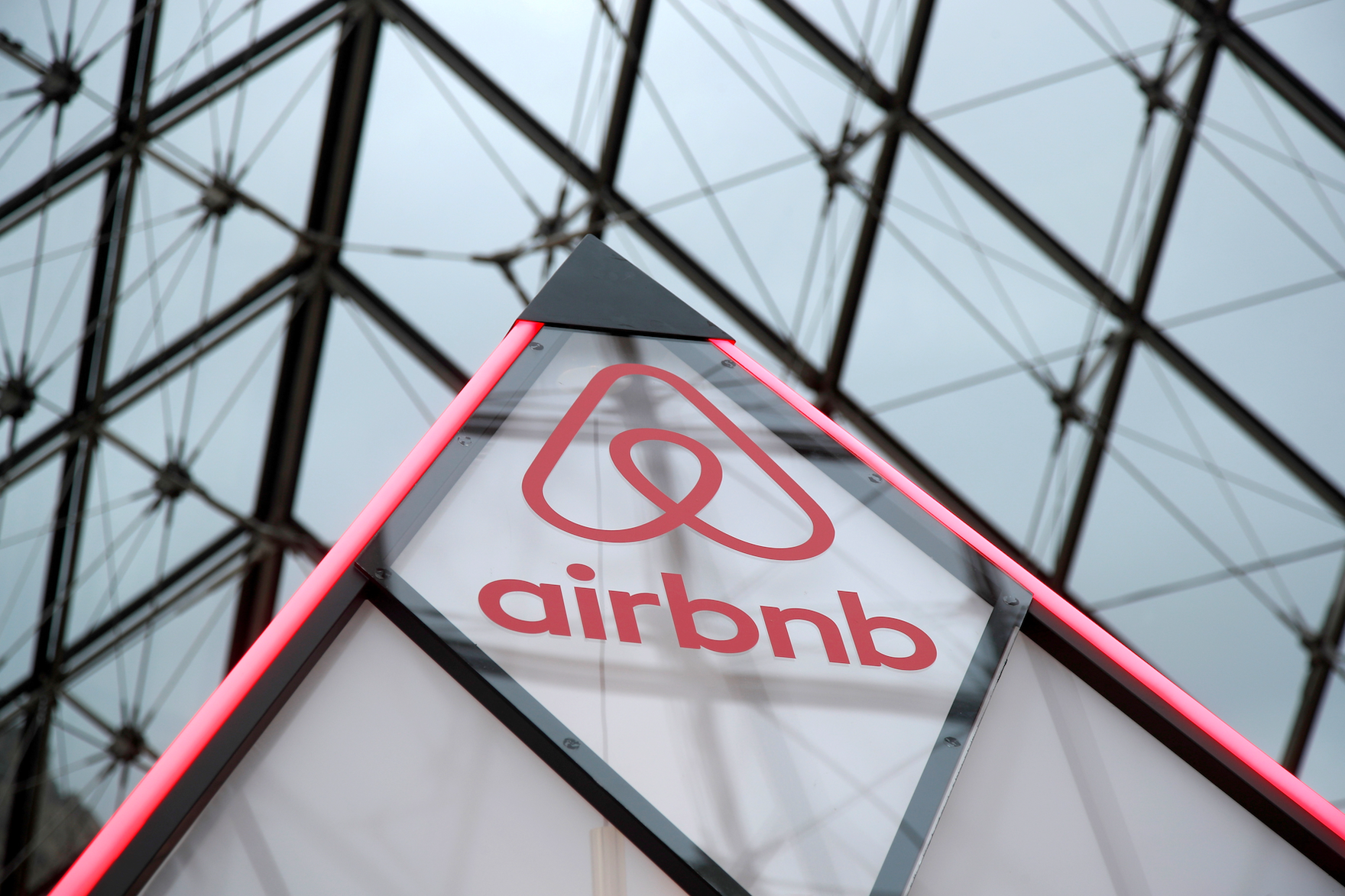The fire that tragically killed seven people in a historic building in Old Montreal, Quebec, on March 16 again focused critical attention on Airbnb’s operations. According to reports, several units in the building had been marketed through the service, in contravention of a 2018 municipal ordinance banning short-term rentals in that part of the city.
An investigation into the fire’s cause continues. However, questions should be asked about whether provincial and city authorities could have done more to detect and address any safety problems, as well as about any role played by Airbnb. In the meantime, the case raises broader questions about how governments should regulate data companies so that their treatment is not substantially different from their analog counterparts (consider Airbnb and hotels, or Uber and taxis). Further, as these companies operate by commodifying data, often from the public realm, governments need to consider what the loss of public control over now-private data sets may have on public regulatory activities and policy making.
Of course, unscrupulous landlords existed prior to Airbnb, as did unsafe housing. By design, however, Airbnb withholds data essential to city officials, because the company’s business model prioritizes the extraction and monetization of housing data, which it does not share. Airbnb also styles itself as a “platform,” strategically separating itself from its analog counterparts in the hotel industry.
The term platform is, in effect, a rhetorical device employed by data-driven companies to argue they should neither be legally defined as equivalent to their analog competitors, nor subject to the same regulatory requirements as those competitors. But Airbnb is not just a website or technical intermediary matching hosts and users. It is a data-driven accommodation company and should be regulated as such.
The Montreal fire has revealed problems not only with investigating and enforcing compliance with fire-safety rules but also problems with, more broadly, how governments regulate data companies. To its credit, the province of Quebec had already taken some important steps. Operators who wish to use a property for short-term rentals must register with Quebec’s tourism ministry, Corporation de l’industrie touristique du Québec (CITQ), specifying whether the property is their principal residence. Vancouver and Toronto have similar registration rules. In Quebec, hosts must also be registered with Revenu Québec to report income. Municipalities can also determine where short-term rentals can occur in their areas, something Montreal has done in Old Montreal.
Enforcement of these rules remains a challenge, however. An expert on Canada’s short-term rental market, David Wachsmuth, characterizes the situation as “a Wild West” where rules are laxly enforced. For example, the independent watchdog group Inside Airbnb tracks listings and has found that more than 90 percent of short-term rentals in Montreal are not authorized by the city. Even after the fire, the Toronto Star reported that the Airbnb website had hundreds of listings for the area, despite city officials having confirmed that only 10 establishments had permits.
It’s not unusual for companies to lobby governments for favourable regulations or to try to intervene to influence regulation. Data companies, however, are also attempting to insert themselves into areas that are traditionally the purview of governments.
Airbnb Causes “Data Deficits”
The problem of governments struggling to effectively enforce rules predates data companies. The complicating factor for Montreal, indeed cities everywhere, is that Airbnb withholds data that cities need to enforce existing policies and craft new policies. This finding is echoed in multiple academic studies of Airbnb, including by legal scholar Teresa Scassa and urban scholar Geoff Boeing and colleagues.
The public might reasonably expect that cities have all the data they need to regulate a sector as important as housing. It isn’t so. City regulators can be stymied in their ability to detect illegal listings because Airbnb listings do not include addresses or the volume of activity. While omitting addresses may be designed to protect the privacy and safety of hosts, it does not enable effective regulation, a critique Montreal Mayor Valérie Plante levelled against Airbnb following the fire.
I examine how cities are on the front lines of battles with data companies like Airbnb and Uber in a forthcoming book, co-authored with Brock University’s Blayne Haggart: The New Knowledge: Information, Data and the Remaking of Global Power. Data companies can impede governance by cities when they withhold data critical to regulating core public services and public planning. It’s a practice that causes “data deficits,” to use Teresa Scassa’s term. Some cities, such as Vancouver and San Francisco, have resorted to legal action to compel access to privately held data. But suing companies for data essential to cities’ planning and regulatory duties is costly, time-consuming and unfeasible in the long term, not to mention a waste of resources.
When companies do share their data with governments, scholars conclude, the information is often lacking important detail about how the data was collected and processed. Company-provided data, scholars have found, also tends to favourably portray the company and its commercial activities. As we argue in our book, data companies prioritize treating data as a proprietary asset, because that is their commercial advantage and the source of their economic power. Indeed, those who can amass and control insights from the data, in part by creating proprietary holds over data sets, can wield power, a concept we term private data power.
Data Companies as “Policy Disruptors”
Moreover, beyond thwarting government regulation, data companies can act as policy disruptors, to use urban studies scholar Zachary Spicer’s term. Disruption occurs when companies leave all the risk in delivering services to governments, while they themselves reap the commercial benefits. Policy disruptors, Spicer explains, act “by exposing gaps in existing regulatory regimes and straining the relationship between regulators and market incumbents.” By calling themselves platforms, data companies claim a right to operate in ways that hotels or taxi firms cannot.
Data companies, for example, tend to devolve their responsibilities to the hosts to enforce, including the responsibility to determine whether a unit can be legally rented or, in the case of ride-hailing services, whether a vehicle is safe. Commenting on the recent fatal fire, Mayor Plante argued that “short-term rental platforms cannot just say that they are the ‘housing marketplace’ and then wash their hands of it afterwards.” She said that “it’s totally absurd” that a business “puts the responsibility on municipal and provincial instances — so taxpayers pay.”
Inserting Themselves into Government
It’s not unusual for companies to lobby governments for favourable regulations or to try to intervene to influence regulation. Data companies, however, are also attempting to insert themselves into areas that are traditionally the purview of governments, such as tax collection and remittance to government. Airbnb, for example, uses voluntary tax collection agreements with its hosts, a policy instituted in response to government calls for compliance with taxes on accommodation. Advocates of this policy emphasize the public benefit, as taxes owed are remitted to government. Critics note that Airbnb’s solution cuts the government out of the data loop as the government receives taxes owed but does not collect valuable, detailed data about either hosts or their properties.
Airbnb has proposed a similar solution following the Montreal fire. The company has promised to give the Quebec government access to the Airbnb City Portal, launched in September 2020, which the latter describes as providing “real-time, actionable insights to better understand the Airbnb landscape in their communities.” Among other information, the City Portal provides tools to “help governments develop and manage fair short-term rental policies and regulations,” including enabling government officials to view registered Airbnb listings in their jurisdictions.
The City Portal may provide actionable data for regulators to better police the rental housing market. It may also share with policy makers detailed data essential to public planning. The persistent problem, however, is that a corporate actor is setting the terms by which governments can access and use its data, in ways that serve its commercial interests. This is bad governance. Government officials should set policy and regulation independent of companies. What Airbnb considers “fair” housing policies, for example, may not be in the public interest.
The Montreal fire should serve as a wake-up call for cities and provinces that they need to take housing safety more seriously, to be sure. But it also sounds an alarm about the need for effective regulation of data companies that provide important services in accommodation and transportation. For too long, so-called platform companies have devolved all manner of responsibilities to others, whether to hosts for ensuring accommodations are legally listed and up-to-code units, or to city officials to alert Airbnb to illegal units on its site. Calling a business a platform, however, shouldn’t absolve it of basic responsibilities that the public would reasonably expect of accommodation companies. Nor should its business practices wholly privatize public data vital for cities’ regulatory and planning functions.



